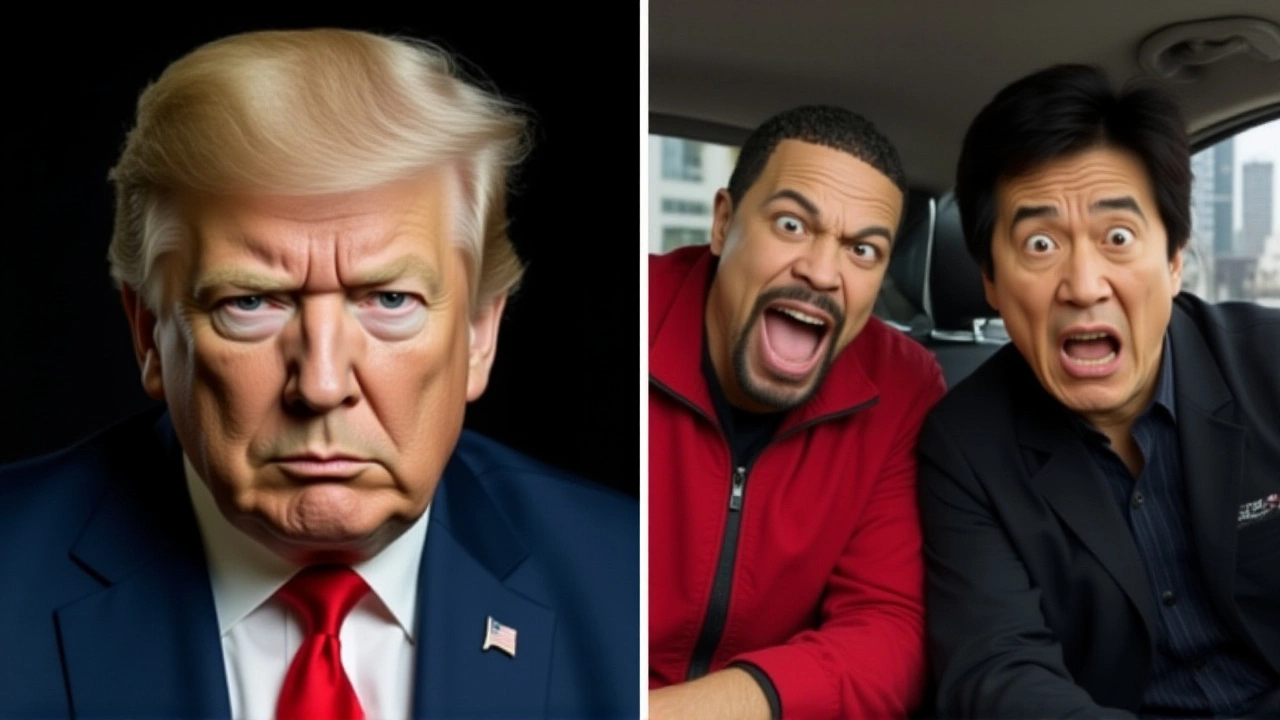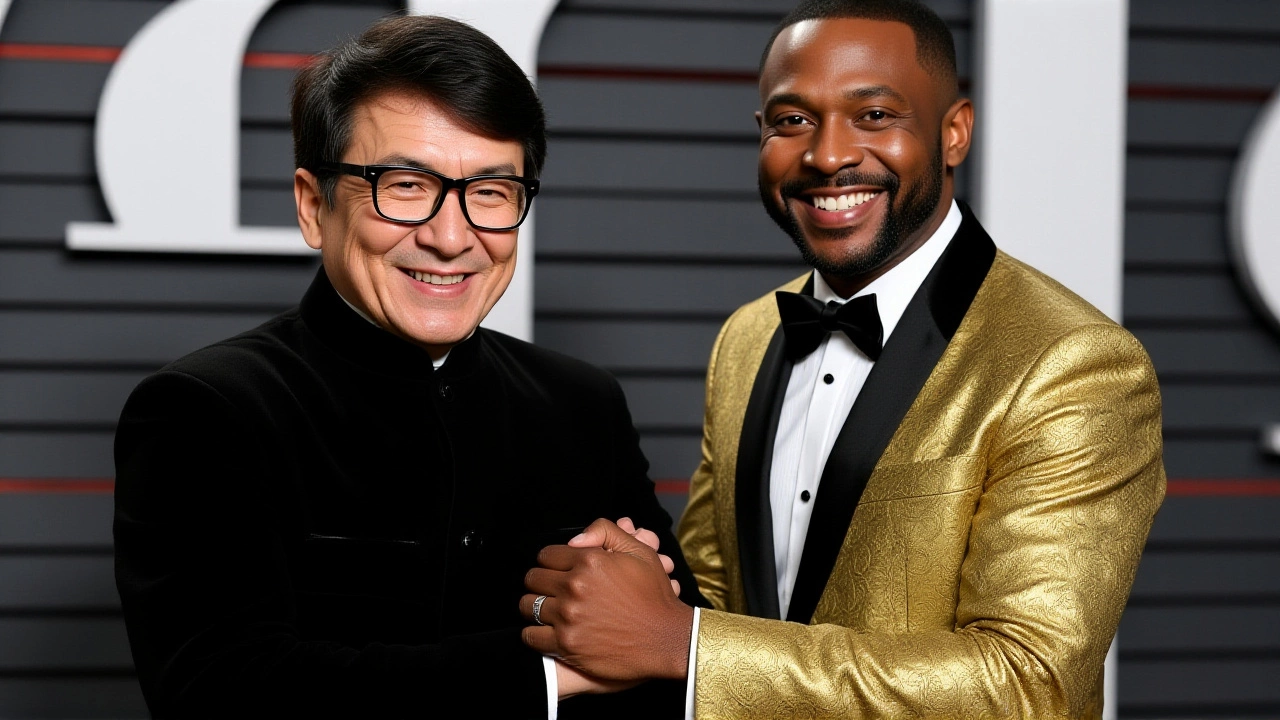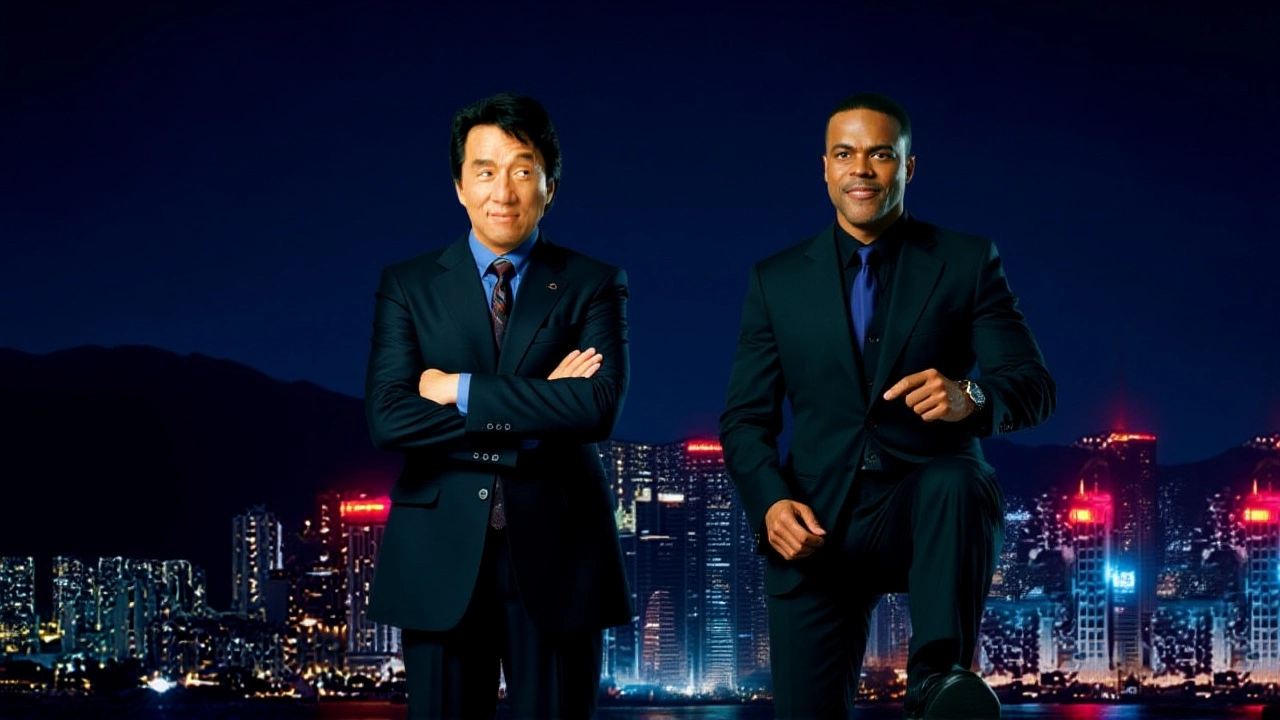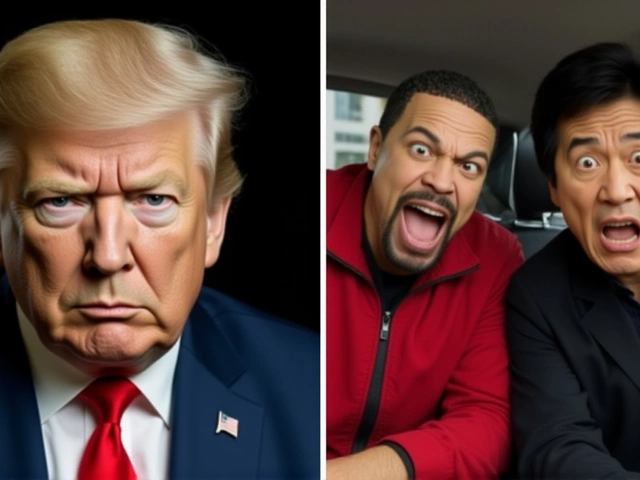Paramount Greenlights 'Rush Hour 4' After Trump’s Private Push

On November 26, 2025, Paramount Pictures officially approved production of Rush Hour 4—not because of box office projections, market research, or fan demand, but because Donald J. Trump asked nicely. The decision, confirmed by MS NOW and Ohio BIN News, came after Trump personally lobbied Shari Ellison, Chair of Paramount Global, during a private meeting at Mar-a-Lago Resort in October 2025. This isn’t just another sequel. It’s the first time in modern Hollywood history that a sitting president’s personal movie preference directly triggered a major studio’s greenlight—and it’s raising eyebrows across the industry.
How a President Became a Movie Mogul
Trump’s love for the Rush Hour franchise isn’t new. Back in 2019, The Washington Post reported that he’d repeatedly reference the films in private conversations with White House aides, often quoting Chris Tucker’s lines with theatrical flair. But this time, it wasn’t just a casual remark. According to MS NOW’s broadcast from 30 Rockefeller Plaza, Trump framed the request as a cultural mission—part of his broader American Cultural Preservation Task Forceestablished after his November 2024 election win. The task force, designed to "revive iconic American film properties," has already targeted other 90s-era franchises, but Rush Hour was his personal favorite.
What made this push work? It wasn’t just Trump’s influence—it was who he was talking to. The Ellison family, led by Oracle founder Larry Ellison and his daughter Shari Ellison, controls Paramount Global through their stake in RedBird Capital Partners. MS NOW described them as "Trump friendly," and that’s an understatement. In Q3 2024, they poured $1.5 billion into Paramount+, signaling a clear alignment with the administration’s cultural agenda. When Trump called, they didn’t just listen—they acted.
The Cast, The Crew, and the Questions
Now comes the tricky part: getting the original team back together. Jackie Chan and Chris Tucker haven’t shared a screen since Rush Hour 3 in 2007. Tucker hasn’t headlined a studio film in 18 years. Director Brett Ratner, who helmed all three previous films, has been largely absent from major productions since 2017 amid controversy. Industry insiders say negotiations are underway, but nothing is signed. "Even if the money’s right," one anonymous producer told Deadline Hollywood, "you’re asking two aging stars to step back into roles they haven’t played in two decades—roles tied to a very specific kind of comedy that doesn’t always translate today."
Paramount’s budget estimate? Around $120 million—adjusted for inflation from Rush Hour 3’s $125 million. That’s a lot for a franchise that last made $258 million globally. And while the original films were global hits, the cultural landscape has shifted. The MS NOW segment cut off mid-sentence when discussing "the manosphere and maha moms," hinting at a deeper, more controversial motive: Is this film being revived not just to entertain, but to signal a return to a certain kind of American identity—one that Trump’s base associates with the 90s and early 2000s?

Why This Isn’t Just About a Movie
This isn’t a studio gamble. It’s a political statement dressed as entertainment. Chris Hayes, anchor of MS NOW, put it bluntly: "This is part of the President’s ongoing efforts to reshape culture for the country." And he’s not wrong. The decision aligns with Trump’s broader strategy of using media to reinforce his political narrative. From Twitter to TikTok, from Fox News to now Hollywood, he’s turned cultural influence into a policy tool.
And it’s working. While critics scoff, his supporters are already celebrating. Online forums have exploded with memes: "Trump got us Rush Hour 4!" "The President saved comedy!" Even Michelle Goldberg of The New York Times, appearing on the same MS NOW segment, admitted: "There’s a weird, undeniable truth here. People miss this movie. Not because it’s great art—but because it was loud, dumb, and unapologetically American. And right now, that’s exactly what some voters want to feel again."

What Comes Next?
Production is expected to begin in Q2 2026, with filming likely to take place in Los Angeles and Hong Kong—locations that mirror the original films’ East-meets-West aesthetic. No official release date has been announced by Paramount Global CEO Robert Bakish or Shari Ellison. But insiders say a late 2027 or early 2028 release is likely—just in time for the next presidential cycle.
One thing’s certain: this isn’t just about making money. It’s about sending a message. That culture isn’t just shaped by artists, audiences, or algorithms anymore. Sometimes, it’s shaped by a president’s favorite action-comedy.
Frequently Asked Questions
How did Donald Trump influence the greenlighting of Rush Hour 4?
Trump personally lobbied Shari Ellison, Chair of Paramount Global, during a private meeting at Mar-a-Lago in October 2025. According to MS NOW and Ohio BIN News, he framed the request as part of his American Cultural Preservation Task Force, which aims to revive iconic American films. His direct intervention, combined with the Ellison family’s close ties to his administration, led to the studio’s swift approval.
Who controls Paramount Pictures, and why does it matter?
Paramount Global is controlled by the Ellison family through their ownership stake in RedBird Capital Partners. Shari Ellison, daughter of Oracle founder Larry Ellison, serves as Chair. Their "Trump friendly" reputation and $1.5 billion investment in Paramount+ in 2024 signal a clear alignment with the administration’s cultural priorities, making them uniquely responsive to Trump’s requests.
Is Rush Hour 4 likely to be successful?
Financially, a $120 million budget is high for a franchise that hasn’t released a film since 2007. While the original films were hits, cultural tastes have shifted. Success will depend less on critical reception and more on Trump’s base embracing it as a symbolic victory. Box office projections are uncertain, but marketing will likely lean heavily into political nostalgia.
What’s the significance of Chris Tucker and Jackie Chan returning?
Chris Tucker hasn’t starred in a studio film since Rush Hour 3, and Jackie Chan has scaled back Hollywood roles. Their return would be historic—not just for fans, but as a cultural reset. It suggests Paramount is betting on nostalgia over relevance. If both agree to sign, it’ll be the first time a sitting president’s personal movie preference has brought back a major Hollywood duo after nearly two decades.
How does this fit into broader trends in entertainment and politics?
This marks a new frontier: political figures directly shaping entertainment content as policy. Trump’s Cultural Preservation Task Force is part of a growing trend where media is treated as a battleground for identity politics. Other studios may follow suit, creating franchises that align with specific voter bases rather than broad audiences. The line between art and ideology is blurring—and Paramount just crossed it.
When will Rush Hour 4 be released?
No official release date has been announced. Production is expected to begin in Q2 2026, with post-production likely taking 12–18 months. A late 2027 or early 2028 release is the most plausible timeline, potentially timed to coincide with the next presidential election cycle—making this film as much a political event as a cinematic one.
